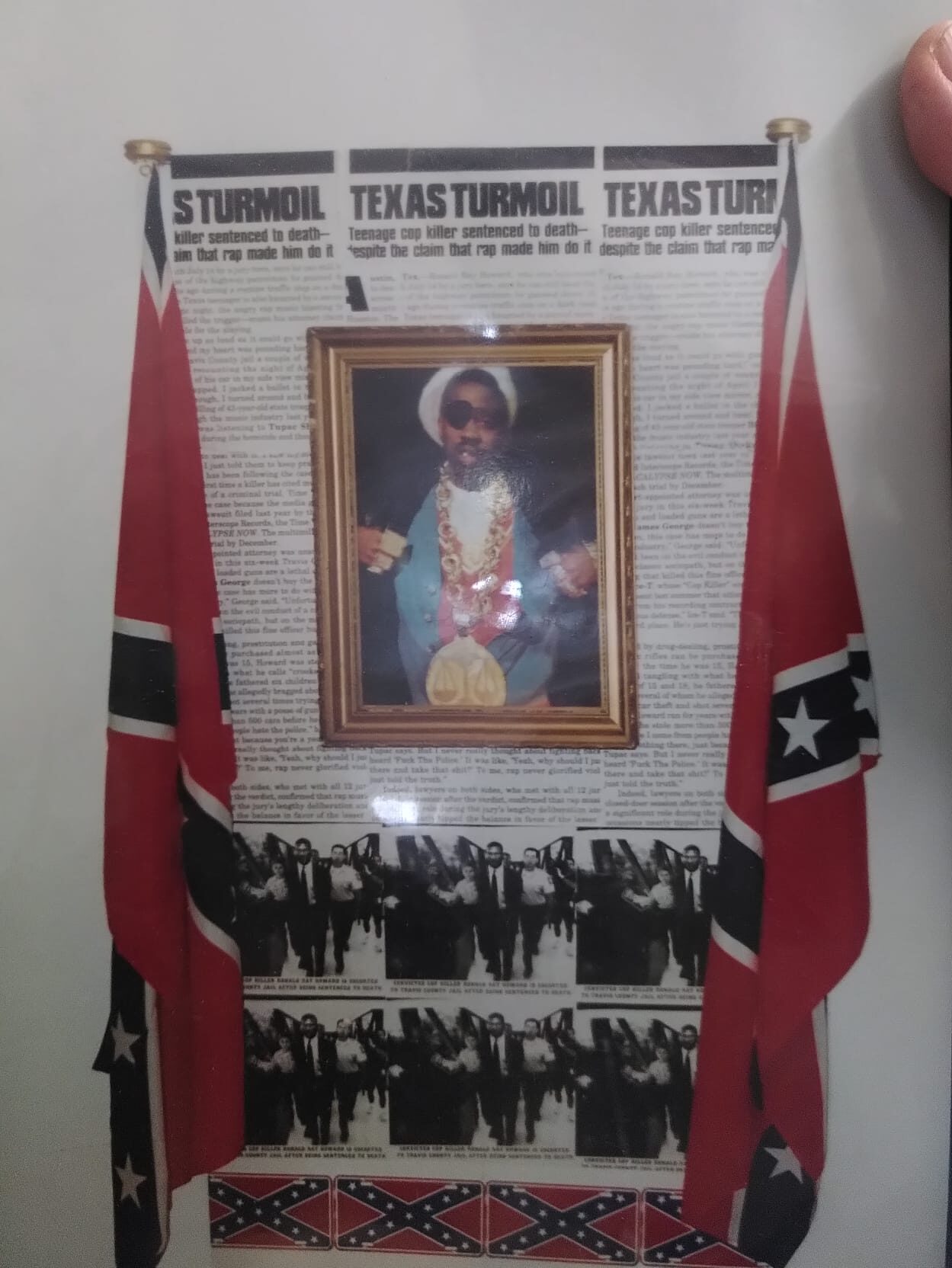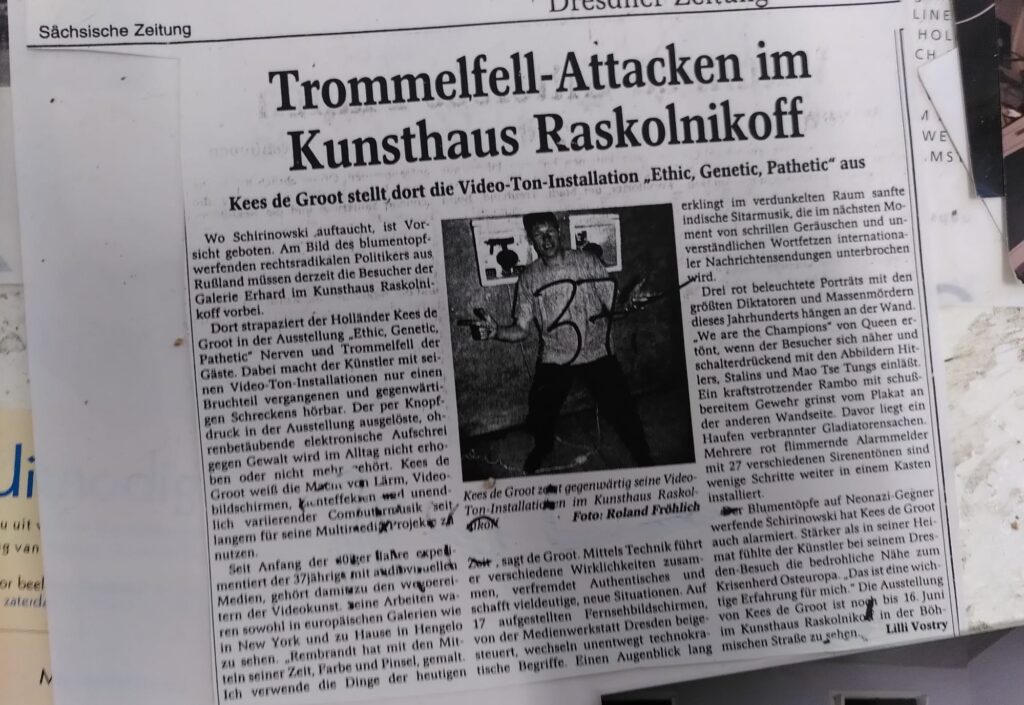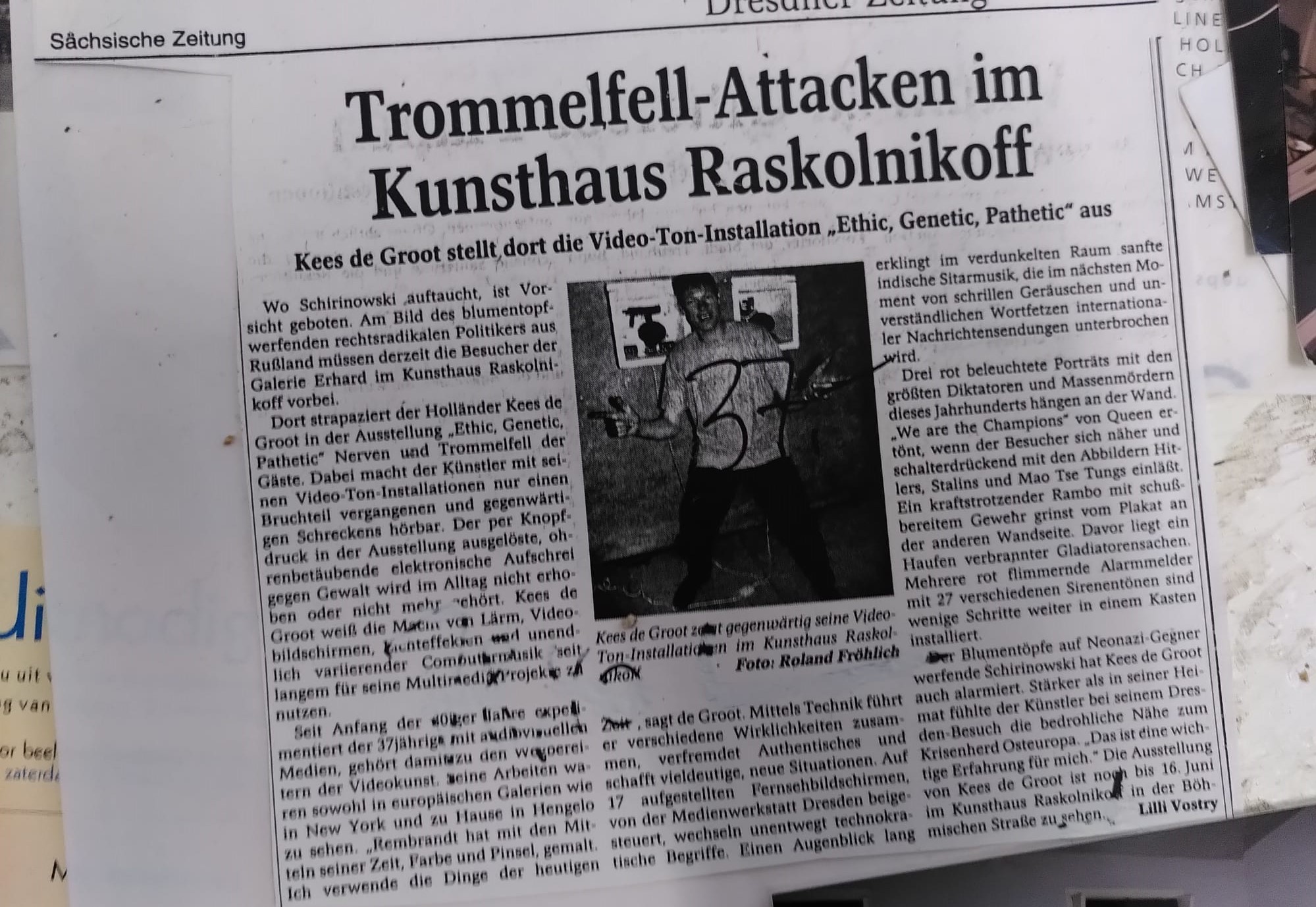How to continue our deep dive into the new world of music that came with technologies such as the drum computer and synthesizer? We already learned about the incredible impact this had on what we could expect music to sound like. The drum kit with its human touch was replaced by a mechanical, repetitive alternation of kickdrum and snare samples in house, and guitar sounds gained competition from the abrasive yet pleasant sounds of the new acid-bass genre. Music was given a complete make-over and dancefloors no longer looked the same. Unsurprisingly, this also had an impact on society at large. Punk always maintained a direct connection with politics; it was the anger of the young generation directly translated into sound. Rock in its turn lent itself perfectly to benefit concerts. Queen, U2, and Sting all contributed to this. The new genres of house, techno, and acid however, seem not as suitable for this. What changed about the relationship between music and politics when the human element of its sound receded more and more into the background?
Lars: punk and the other genres of that time seemed very politically engaged. If I examine the music that I listen to myself, and look around on the festivals I visit, this political engagement seems to be diminishing. What changed according to you?
‘’I think these genres were always more about escapism. They gave people the opportunity to flee their daily responsibilities and dance it all out for a short while.”
Kees: That is an interesting question I also ask myself often. I think the changed relationship between music and culture has a lot to do with the economic boom of the 90s, when welfare in the West increased substantially. The lives of people became easier and convenience became a deciding factor. At the same time, there were no longer any negative consequences or social repercussions to an indulgent lifestyle. This only changed when the events of 9/11 shocked all of the West, and it had to rethink the trajectory it had set out for itself. It happened again when the Cold War ended and then in 2008 when the financial bubble of the housing market finally burst. Powers were redistributed and the balance shifted. I think the current war between Ukraine and the Soviet Union is to a large extent a logical consequence of all these complicated developments. What surprises me is that the new generations seem less willing to climb the barricades for this – unlike the generation of the 70s and 80s. When it was about the separation of church and state, or the making of atomic weapons, we as youth regarded it as our duty to protest. Now, the world seems to be engulfed in flames but this is not mirrored by the general sentiment and actions of our youth.

Lars: Especially because the sentiment does not resonate in exactly the genres that came after punk and rock?
Kees: And now you’re talking about techno, house, acid, and drum&bass of the 80s and 90s. I feel like these genres let people off the hook easy, exactly because there were no lyrics that called upon them to act. The genres told a purely instrumental story for the sake of dancing. As far as I know there are little to no examples of electronic bands or artists with strong political statements. On the contrary, I think these genres were always more about escapism. They gave people the opportunity to flee their daily responsibilities and dance it all out for a short while. Current generations don’t seem to have as much to worry about, and can live quite hedonistic lives. The problems of their world are more abstract or seem less urgent. Take for example the unrest and poverty in third world countries. However important these issues might be, they are not pressing to the wealthy youth in the West. The same goes for climate change, which is such an abstract problem that it is hard to feel how important fighting it really is.
‘’Ethic, Genetic, Pathetic was an installation that referred to the incipient American police violence and aggressive cultural expressions that you saw in the videogames of that time. Add to this the Western soldier, the profit grabbers of capitalist corporations, and the man who never cried. All of these were glorified by American culture.’’
Lars: I do not agree with you entirely because I still see a lot of fervor and activism amongst my generational peers. What I find especially interesting is that the activism of now is considerably less connected to the music of its time. Movements like Extinction Rebellion and Black Lives Matter have been in the news all too often with the problems of our generation. Discrimination, sexism, racism, and climate change are the talk of the day amongst us, I just don’t see these subjects reflected in music. This is probably because I listen to electronic music almost exclusively. What also caught my attention is the fact that activism is losing its do-it-yourself character, and is increasingly supported by institutions with capitalist interests who earn a lot of money by supporting these activisms. This in contrast to something like the early punk movement that would never even considering collaborating with such companies.

Kees: this reminds me of the new genres of music that emerged at the end of the 80s: hip-hop and rap. I was in the United Stated in 1984 and there I saw the Afro-American youth for the first time sporting their ghetto blasters and throwing cool dance moves. This, accompanied by strong, gritty statements was already very present in the music of Public Enemy for example. Their aggressive music and its in-your-face attitude that grabbed the listener by the throat also strongly influenced my work. I have it lying around here somewhere… [Kees grabs hold of an image showing the Confederate flag and a rapper wearing a huge golden chain] Ethic, Genetic, Pathetic was an installation that referred to the incipient American police violence and aggressive cultural expressions that you saw in the videogames of that time. Add to this the Western soldier, the profit grabbers of capitalist corporations, and the man who never cried. All of these were glorified by American culture. My installation criticized these developments in the noisy way that was typical of my practice, taking an example from the emerging culture of hip-hop and rap. Ethic, Genetic, Pathetic was exhibited in Dresden at the end of the 90s and describes the evolution of mankind which, in my opinion developed, in a pathetic way. Seeing that we may just be at the verge of a third world war, this is once again confirmed all the more. This artwork was a huge wall of sound and that is why, to my satisfaction, the Dresdener Zeutung wrote: ‘’Trommelfell Attacken in Kunsthaus Raskolnikov’’. Maybe it’s precisely the noise that I think is missing the most. The current generation seems too silent ina time that requires alarm, noise, and upheaval.
This was part two of our deep deep dive into music. And how deep would a deep dive be without a third part? Not deep enough in my opinion. So expect more on music and politics in the next iteration.
